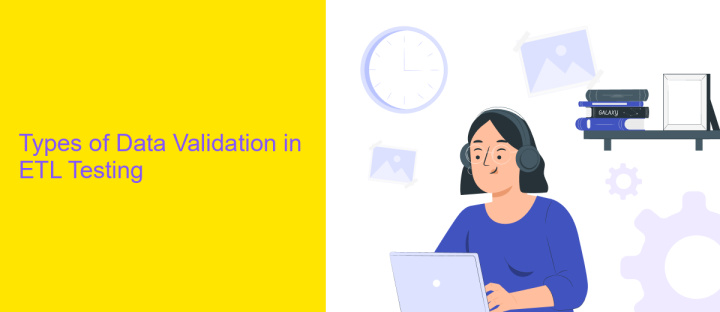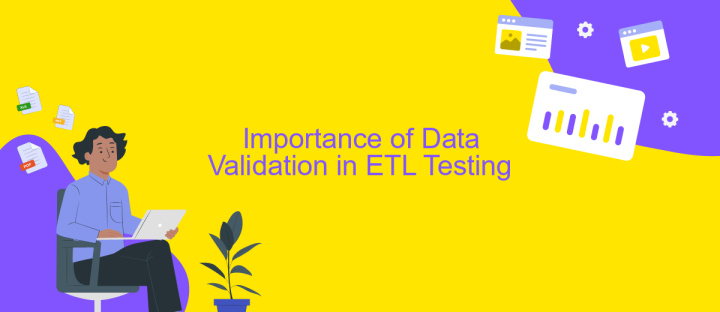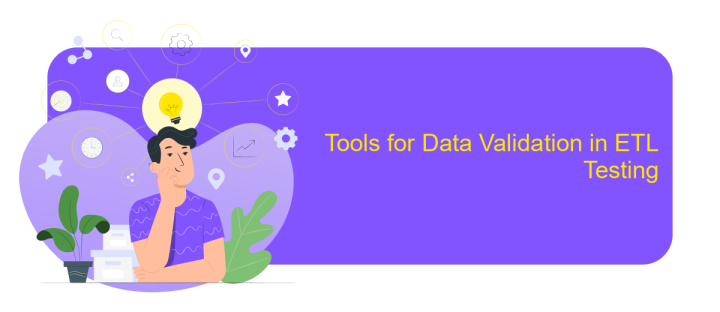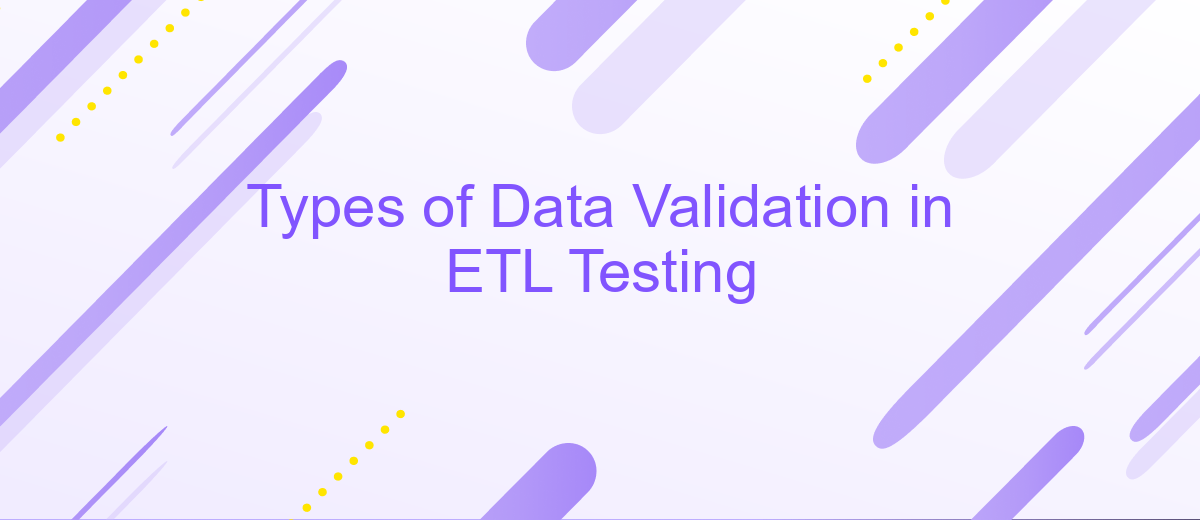Types of Data Validation in ETL Testing
Data validation is a crucial step in ETL (Extract, Transform, Load) testing, ensuring the accuracy, completeness, and reliability of data as it moves from source to destination. This article explores various types of data validation techniques used in ETL processes, highlighting their importance in maintaining data integrity and quality in business intelligence and data warehousing environments.
Introduction
Data validation is a critical step in ETL (Extract, Transform, Load) testing, ensuring the accuracy and quality of data before it is loaded into the target system. It helps in identifying data inconsistencies, errors, and discrepancies that could affect business decisions and operations. Proper data validation can prevent costly mistakes and ensure that data-driven processes run smoothly.
- Data Completeness Validation: Ensures all required data is present.
- Data Accuracy Validation: Checks if the data is correct and precise.
- Data Consistency Validation: Verifies that data remains consistent across different systems.
- Data Uniqueness Validation: Ensures no duplicate records exist.
- Data Integrity Validation: Confirms that data relationships are maintained.
With the growing complexity of data integrations, tools like ApiX-Drive can streamline the validation process by automating data transfers and checks between various systems. By leveraging such services, organizations can enhance their ETL workflows, ensuring that data is validated efficiently and accurately, thus supporting better decision-making and operational excellence.
Types of Data Validation in ETL Testing

Data validation in ETL testing is a crucial step to ensure the accuracy and reliability of data being transferred from source systems to the data warehouse. One key type of validation is data completeness validation, which checks whether all expected data is loaded into the target system. This involves verifying that no data is missing during the extraction, transformation, and loading processes. Another important type is data accuracy validation, which ensures that the data values are correct and consistent with the source data. This includes checking for data type mismatches, incorrect calculations, and other discrepancies.
Data transformation validation is also essential in ETL testing. It verifies that the data transformation rules are applied correctly and that the transformed data meets the business requirements. Additionally, data integrity validation checks for referential integrity, ensuring that relationships between tables are maintained. For organizations using integration services like ApiX-Drive, automated validation processes can be set up to streamline these checks, reducing manual effort and minimizing errors. ApiX-Drive can help automate data validation by seamlessly integrating various data sources and ensuring that data flows correctly through all stages of the ETL process.
Importance of Data Validation in ETL Testing

Data validation in ETL (Extract, Transform, Load) testing is crucial for ensuring the accuracy and reliability of data as it moves from source to destination. Without proper validation, data integrity can be compromised, leading to faulty business decisions and operational inefficiencies.
- Accuracy: Ensures that data is correct and free from errors.
- Completeness: Guarantees that all necessary data is present and accounted for.
- Consistency: Verifies that data remains uniform across different systems and stages.
- Timeliness: Confirms that data is up-to-date and available when needed.
- Uniqueness: Ensures that there are no duplicate records.
Effective data validation can be facilitated by integration services like ApiX-Drive, which help automate and streamline the validation process. By using such tools, organizations can ensure that their ETL workflows are robust, reducing the risk of data-related errors and enhancing overall data quality. This, in turn, supports better decision-making and operational efficiency.
Tools for Data Validation in ETL Testing

Effective data validation is crucial in ETL testing to ensure the accuracy and reliability of data being transferred between systems. Various tools are available to simplify and automate the data validation process, making it more efficient and less prone to human error.
These tools offer a range of features, from basic data comparison to advanced validation rules and integration capabilities. Selecting the right tool depends on the complexity of your data and the specific requirements of your ETL process.
- Apache Airflow: A powerful tool for orchestrating complex data workflows and validating data at different stages.
- Talend: Provides comprehensive data integration and validation features, including built-in data quality checks.
- QuerySurge: Specializes in automating data validation and testing for data warehouses and big data environments.
- ApiX-Drive: Facilitates integration and validation by connecting various applications and automating data transfer processes.
Using these tools can significantly streamline the ETL testing process, ensuring that data is accurately validated and any discrepancies are promptly identified and addressed. By leveraging the capabilities of these tools, organizations can maintain high data quality and integrity throughout their ETL workflows.
Best Practices for Data Validation in ETL Testing
To ensure accurate and reliable data validation in ETL testing, it is essential to implement a comprehensive strategy. Begin by defining clear validation rules and criteria that align with business requirements. This includes checking data completeness, accuracy, consistency, and integrity. Automate these validation processes wherever possible to minimize human error and improve efficiency. Regularly update your validation rules to accommodate changes in data sources and business logic.
Utilizing integration services like ApiX-Drive can further streamline the validation process. ApiX-Drive facilitates seamless data integration between various platforms, ensuring that data is transferred accurately and consistently. It also offers real-time monitoring and error handling, which can significantly enhance the reliability of your ETL processes. By leveraging such tools, you can focus more on analyzing and improving data quality rather than managing the complexities of data integration. Consistently review and audit your ETL processes to identify and rectify any issues promptly.
FAQ
What are the main types of data validation in ETL testing?
Why is data completeness validation important in ETL testing?
How does data transformation validation work?
What tools can be used for automated data validation in ETL processes?
What is the role of data integrity validation in ETL testing?
Apix-Drive is a simple and efficient system connector that will help you automate routine tasks and optimize business processes. You can save time and money, direct these resources to more important purposes. Test ApiX-Drive and make sure that this tool will relieve your employees and after 5 minutes of settings your business will start working faster.

